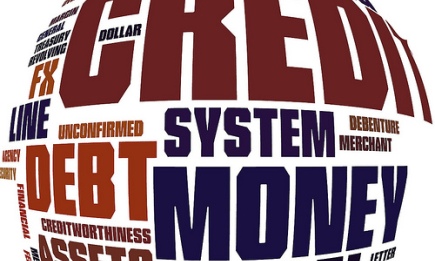Europe privatizes public debt through student loans

The Dutch government is set to
From debt crisis to identity crisis
With the turmoil created by the Eurocrisis, it is becoming evermore evident that higher education is closely associatedwithmacroeconomic policymaking which has been severely affected by theon-going global recession.
What is more: the situation in EU has transformed into an”identity crisis” where the different member countries compete toprove that they are not associated with those states that arecommonly referred to as the P.I.G.S. For quite a few years now thedebt crisis was considered a ‘bug’ of the south. However, it is nowbecoming obvious what several prominent economists were arguingsince the beginning of the crisis, that the crisis in Europe is asystemic crisis which should be dealt in a coherent manner at acentral economic policymaking level.
Selective monetarism legitimizes harsh austeritymeasures
Unfortunately, the EU has proven to be extremely bureaucraticand conservative in dealing with the debt crisis. At the heart ofthis is the long-existing cultural divide between the north andsouth of EU countries which was hidden until recently.Additionally, the debt crisis has coincided with the rise ofneo-liberalism in Europe and elsewhere. Its advocates have blamedgovernment intervention and public spending for the globalrecession calling for rationalisation of fiscal policies and use ofmonetary policy to restore competitiveness.
This mentality shift was also accompanied by calls for”selective monetarism” which supports devaluating currencies indebt-ridden countries like Greece while at the same timeselectively increasing the money supply in the intra-bankingmarkets. Unfortunately, this has also legitimised severe austeritymeasures in EU countries. In the past, the IMF used those under thetitle of Structural Adjustment Policies with only limited success.These austerity measures and developments at macroeconomic leveldirectly impact the higher education policies in European memberstates.
Graduate unemployment and degreemassification
In the UK and other EU countries it becomes clear now thatreplacing direct government funding in higher education withstudent loans is an effort to transform public debt into privatedebt. This falls under a more general policy by Europeangovernments to reduce or eliminate public deficit and foster fiscalconsolidation. Thus, higher education policy has entered a phase of”macroeconomic influence” and increasingly academic objectives arebeing misplaced by financial indicators.
At the same time, two additional developments will have sweepingconsequences for European higher education.
First of all, unemployment of young graduates is reachingrecord-high rates. Unfortunately, the contemporary globalisedeconomy has not appropriately addressed the issue of employment. Inthe EU and elsewhere, the prevailing understanding ofcompetitiveness today is increasingly associated with lower minimumwages and flexible labour conditions, something which stands instark contrast to the objective of governments to widenparticipation in higher education and training a better-educatedworkforce. This becomes particularly problematic and ethicallyquestionable if you also take into account the increased financialburden on students and their families. Thus, even within thecurrent rational financial context of analysis, higher educationappears to have a declining return on investment (ROI) for studentsand their families.
Second, the inflation of qualifications has shifted upwardsstandards in the labour market following the increase in the numberand nature of providers along with the booming demand andparticipation rates in higher education. Undergraduate degrees aretransformed into standard qualifications taking the place ofvocational training diplomas. This devaluation of undergraduate andpostgraduate qualifications in the employment market has to beconsidered when governments want to integrated graduates into theeconomy.
Unbalanced budget no longer a phenomenon of thesouth
The above two factors are creating a situation where highereducation institutions are placed in the middle of a crossroadwithout a definite choice of directions.
The recent break-up of the Dutch coalition government marks thebeginning of the end of a period where public debt and fiscalimbalances were characteristics of the south. Sooner or later,Europeans should have to deal with the real problem of cyclicalimbalances between member states. An appropriate instrument forthis, e.g. Eurobonds, has to be chosen to respond to this.
Only if macroeconomic problems are dealt with in a comprehensiveand effective manner, higher education institutions are able tofocus on responding adequately to the challenges created by themassification of higher education.
Meest Gelezen
Wederom intimidatie van journalisten door universiteit, nu in Delft
‘Burgerschapsonderwijs moet ook verplicht worden in hbo en wo’
Extra geld voor bètafaculteiten is daar nooit terechtgekomen
Raad van State: laat taaltoets nog niet gelden voor hbo-opleidingen
Vrouwen houden universiteit draaiende, maar krijgen daarvoor geen waardering

